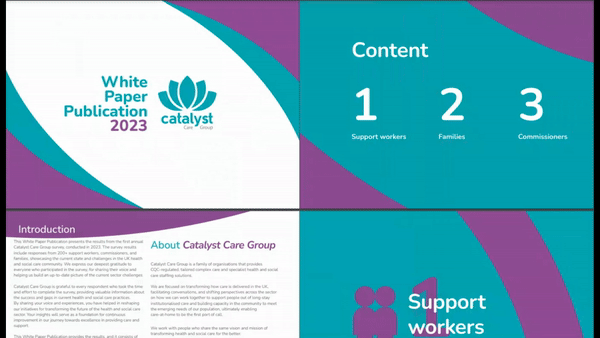Selecting the Right Healthcare Provider for Individuals in Need of Care
In selecting the right healthcare provider for individuals in need of care, case commissioners focus on evaluating qualifications, experience, and the provider’s ability to deliver high-quality services efficiently. They rely on evidence-based decision-making to make certain that service specifications align with the best clinical practices.
Healthcare commissioners analyse existing services provided by various provider organisations, appraising their effectiveness and relevance to the specific needs of the population. By prioritising evidence-based practices and thoroughly examining service specifications, commissioners aim to enhance the quality of care delivered to individuals.
Additionally, they closely examine provider organisations’ clinical practices to guarantee that they meet the required standards for patient care. Through a thorough evaluation process, commissioners aim to identify healthcare providers that not only meet but exceed the expectations set forth in the service specifications. This rigorous assessment ensures that individuals in need of care receive services from provider organisations that demonstrate a commitment to delivering the right care, the right support and the right culture.
Insights from the Frontline
After spending a year deeply integrated into the healthcare sector, we’ve gleaned significant insights into what commissioners value most in their providers.
At the heart of these expectations is the demand for creativity and innovation, such as initiating volunteer-driven low-level services to foster community connection. Equally crucial is the emphasis on partnership working, which involves maintaining transparent communication with commissioners about service challenges, and fostering collaborative relationships among providers to ensure service continuity. Social value also emerges as a key priority, with a focus on generating local employment opportunities, supporting those experiencing homelessness, engaging with micro-enterprises, and ensuring equitable compensation practices.
Moreover, environmental responsibility is highlighted through the adoption of sustainable practices like utilising electric vehicles, promoting local shopping among service users, and mindful procurement of office supplies.
Our commitment is to foster a community-oriented, strengths-based approach to social care that champions innovation, inclusivity, and sustainability.
We invite you to be part of this transformative journey.
The Primary Responsibilities of Healthcare Case Commissioners
The main responsibilities of healthcare case commissioners include evaluating healthcare provider qualifications and guaranteeing service excellence for individuals in need. Case commissioners play an important role in overseeing commissioning processes to make sure that healthcare providers meet the required standards of care delivery. They’re tasked with conducting thorough assessments of healthcare providers to verify their qualifications, experience, and capacity to offer quality services.
Additionally, case commissioners are responsible for monitoring and evaluating healthcare providers’ performance to ensure that they maintain service excellence and adhere to established guidelines. Effective commissioning is a key focus for case commissioners as they work towards optimising the delivery of healthcare services to meet individuals’ needs. By engaging in strategic decision-making and collaboration, case commissioners enhance the overall quality and effectiveness of healthcare provision.
Through their primary responsibilities, case commissioners contribute to the improvement of healthcare outcomes and the well-being of individuals in need of care.
Key Considerations Healthcare Case Commissioners Prioritise When Selecting Healthcare Providers
Healthcare case commissioners prioritise key considerations when selecting healthcare providers. They focus on the quality of care, range of services offered, accessibility, collaboration, communication, cultural competence, and diversity. These aspects are vital in ensuring that the chosen providers can meet the diverse needs of the population they serve, maintain high standards of care, and promote effective communication and collaboration within the healthcare system.
Quality of Care
When selecting healthcare providers, case commissioners prioritise the quality of care above all else. The quality of care provided by healthcare providers is a critical factor in commissioning services, particularly in the delivery of health services to the community. Case commissioners place significant emphasis on ensuring that healthcare providers offer high-quality care that meets established standards and guidelines.
Quality of care encompasses various aspects, including safety, effectiveness of treatments, patient experience, and overall outcomes. Healthcare providers who demonstrate a commitment to delivering exceptional quality care are more likely to be selected by case commissioners for health care commissioning services, especially in the domain of community health services.
The ability of a healthcare provider to consistently deliver quality care is essential for building trust and ensuring positive health outcomes for the community.
Range of Services
In evaluating healthcare providers, case commissioners prioritise selecting those who develop services and practice guidance to properly meet the community’s varying needs. Healthcare services encompass primary care, specialised treatments, preventive care, and support services.
Local authorities and commissioners often prefer health care organisations that can provide an all-encompassing range of services due to their ability to address diverse health requirements within the community. Having a broad range of services available guarantees that individuals receive holistic and continuous care, promoting better health outcomes.
Primary care plays a pivotal role in this spectrum, acting as the first point of contact for patients and facilitating referrals to other services as needed. To be competitive in the commissioning process, healthcare providers must demonstrate their capacity to deliver an all-encompassing range of high-quality services.
Accessibility and Availability
Key considerations prioritised by healthcare case commissioners when selecting healthcare providers include ensuring the accessibility and availability of services to effectively meet the diverse needs of the community.
NHS commissioners place a high value on healthcare providers that offer easily accessible primary care services. They ensure that service users can promptly access the necessary healthcare they require. The availability of services, especially in critical areas such as emergency care and specialist treatments, is vital for commissioners when making their selections.
Providers that demonstrate a commitment to maintaining suitable operating hours, reducing waiting times, and offering flexible appointment scheduling are more likely to be favoured by commissioners. Ultimately, accessibility and availability are key factors that influence the decision-making process of healthcare case commissioners in selecting the most suitable providers for the community.
Collaboration and Communication
Healthcare case commissioners prioritise collaboration and communication skills when selecting healthcare providers. Effective collaboration involves engaging stakeholders, sharing information, and making joint decisions. Providers must demonstrate strong communication to guarantee clarity in decision-making processes. Leadership plays a vital role in fostering collaboration and guiding communication among different healthcare entities. The ability to navigate complex relationships and align priorities with various stakeholders is key.
Clear and open communication channels are essential for successful collaboration in healthcare commissioning. Providers who excel in communication and collaboration contribute to a cohesive approach in decision-making processes, ultimately benefiting the care and outcomes. Commissioners seek healthcare providers who exhibit leadership qualities and prioritise effective communication strategies to drive successful collaborations within the healthcare system.
Cultural Competence and Diversity
When selecting healthcare providers, commissioners prioritise cultural competence and diversity as vital considerations. Healthcare providers must demonstrate an understanding of cultural nuances within the community they serve, ensuring that services are inclusive and accessible to all individuals.
Embracing diversity not only enhances overall care satisfaction but also improves health outcomes by addressing people’s unique needs and perspectives. Providers with a culturally competent approach can offer tailored care that respects different beliefs, values, and backgrounds.
Additionally, organisational culture plays an important role in promoting diversity and inclusivity within healthcare settings. By fostering a culture that values differences and promotes equity, providers can create a welcoming environment that enhances the delivery of community services.
Cost-effectiveness of Healthcare Services
When evaluating healthcare providers, commissioners prioritise the cost-effectiveness of services to guarantee efficient resource allocation and the best care delivery. Cost-effectiveness plays an essential role in decision-making processes, as commissioners aim to maximise the value of healthcare services while managing limited budgets effectively.
Providers offering high-quality care at a reasonable cost are more likely to be selected for partnerships or contracts. Commissioners carefully assess the balance between the cost of services and the outcomes achieved, ensuring that the healthcare system remains sustainable and person-centred.
Enhancing Positive Outcomes Through Collaborations with Healthcare Providers
Collaborations with healthcare providers play a pivotal role in optimising positive outcomes in commissioning healthcare services. By fostering strong partnerships with healthcare providers, case commissioners can leverage evidence-based practices, strategic manoeuvring, and shared expertise to enhance the quality and effectiveness of healthcare services.
These collaborations enable a more all-encompassing approach to care delivery, ensuring that individuals receive thorough and coordinated treatment that aligns with best practices and clinical guidelines. Healthcare providers bring valuable insights and specialised knowledge to the table, contributing to informed decision-making and the implementation of innovative solutions that drive positive outcomes.
Through collaborative efforts, case commissioners can tap into healthcare providers’ diverse skill sets, promote a culture of continuous improvement, and ultimately achieve better results for individuals and communities. Embracing a collaborative approach with healthcare providers is key to achieving sustainable and impactful outcomes in commissioning healthcare services.
Nurseline Community Services: Meeting Case Commissioners’ Criteria for Exceptional Healthcare Provision
At the heart of our services is a deeply rooted commitment to person-centred care, ensuring that each individual’s unique needs and preferences are at the forefront of our care planning and delivery. Our services span a broad spectrum, including mental health support, learning disabilities support, crisis management, and much more, ensuring comprehensive care for individuals with complex care needs.
We pride ourselves on our rapid and efficient crisis management capabilities, supported by our expert Fast Response Team. This team is ready to de-escalate any crisis situation within 24-48 hours, offering a lifeline in urgent situations. Our approach is not just about addressing immediate needs; it’s about fostering long-term positive outcomes and independence for individuals in their homes and communities.
This dedication to enhancing the quality of life and reducing hospital readmissions through our outcome-based approach has garnered praise from regulators and families alike, evidenced by our GOOD rating in responsive, safe, and caring categories from the Care Quality Commission (CQC).
For those seeking further evidence of our impact, we invite you to explore the journeys of some of the individuals we’ve had the pleasure of supporting.
Contact us today to learn more about how we can support you or your loved ones.






